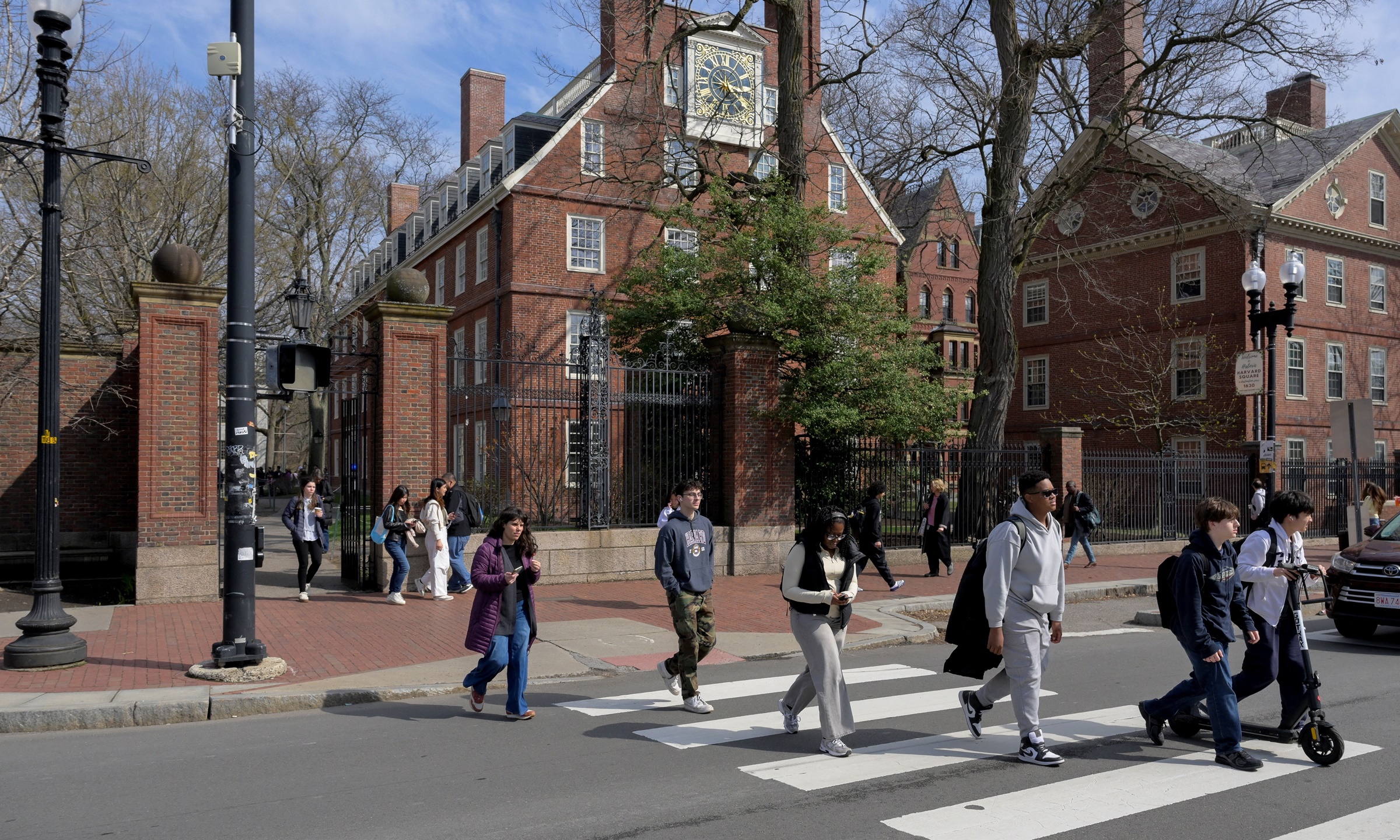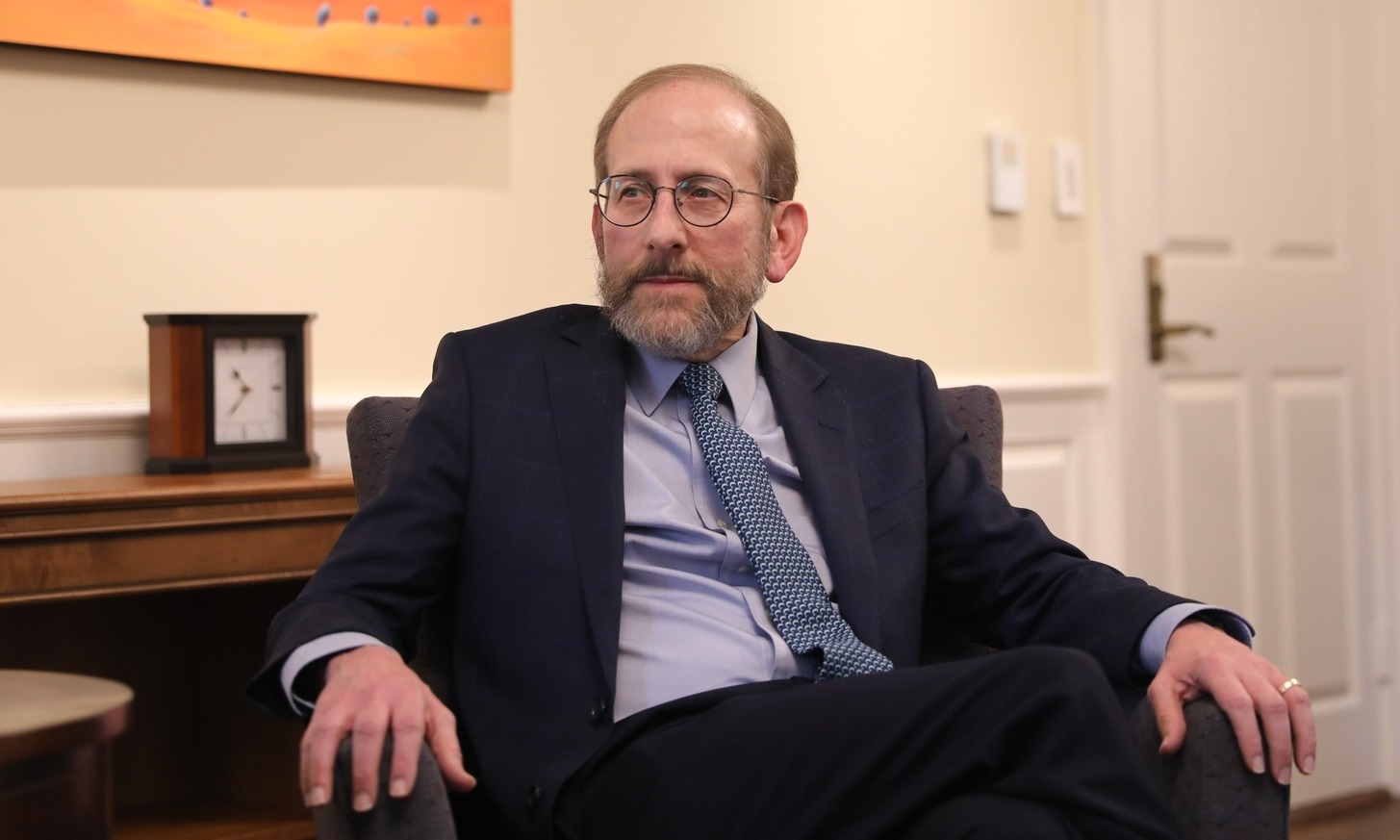The Trump administration has targeted Harvard University, alleging that the university has not adequately addressed concerns regarding anti-Semitism and its diversity programs. Washington has cut several federal grants, attempted to revoke the university's ability to admit international students, and threatened to remove its tax-exempt status.
Earlier this month, President Trump signed the "Big, Beautiful Act", increasing taxes on the endowments of private universities. The tax increased from 1.4% to 8% for universities with the largest endowments, including Harvard.
The Trump administration also cut 700 million USD in annual research funding to Harvard. This funding supported research in areas such as breast cancer, colon cancer, pediatric HIV, and limb regeneration. In a June court filing, the university emphasized its "inability to independently offset this funding shortfall".
A billion-dollar deficit
In a worst-case scenario, if Harvard is prohibited from admitting international students, loses all federal research funding, and is subjected to the 8% annual tax on its endowment, the university would face a budget deficit of up to 1 billion USD annually, according to a Wall Street Journal (WSJ) analysis based on publicly available data.
Harvard maintains an annual budget of 6.4 billion USD. According to its 2024 financial report, Harvard's revenue comes from various sources: endowment income (2.4 billion USD), undergraduate and graduate tuition (800 million USD), executive education programs (600 million USD), non-governmental research grants (300 million USD), and operating donations (500 million USD).
The WSJ analysis indicates that Harvard faces a substantial budget deficit if the worst-case scenarios materialize. These include cuts to research funding (-700 million USD), increased taxes on endowment income (-240 million USD), and a decline in international student enrollment (-110 million USD).
While Harvard has a 53 billion USD endowment, the university only draws on the investment returns from this fund (2.4 billion USD in 2024) for its regular operations to maintain the endowment's long-term sustainability.
Harvard's annual endowment spending is not directly tied to annual investment returns. It is calculated based on a stable rate of 4.5-5% of the average endowment value over the past few years, ensuring that the operating budget does not fluctuate dramatically with the market.
80% of Harvard's endowment is restricted, meaning it can only be used for specific purposes designated by the donors. Many stipulations dictate that only the generated interest can be used, not the principal. Adhering to these conditions is mandatory, and Harvard strictly enforces them to maintain its credibility with donors and comply with the law.
"They have enough money to last for a while, but eventually there will have to be significant cuts," said Robert Kelchen, a professor at the University of Tennessee, Knoxville, who specializes in education finance. "This will change the future of the university."
 |
Students walk outside Harvard Yard at Harvard University in Cambridge, Massachusetts, on 15/4. Photo: Reuters |
Students walk outside Harvard Yard at Harvard University in Cambridge, Massachusetts, on 15/4. Photo: Reuters
These figures partially explain why Harvard has begun negotiations with the administration after months of opposition. A prolonged deficit of this magnitude would place immense pressure on Harvard's ability to manage its operating budget.
Harvard previously rejected President Trump's demands for changes and twice sued the administration over research funding cuts and the international student ban. A federal judge suspended the ban, but the Trump administration has indicated it will appeal.
President Alan Garber expressed concerns to donors that the government's research funding cuts could weaken Harvard's standing as a leading global research institution. He cited the Nature Index rankings, where Harvard holds a high position, but noted that many top spots are now held by Chinese research institutes.
Harvard stated it is working to foster open-mindedness in its classrooms and recruit students willing to embrace diverse perspectives. According to a social media post by President Trump, both parties began negotiations in mid-June.
However, earlier this month, the Trump administration informed Harvard that it had violated federal civil rights law in its treatment of Jewish and Israeli students, potentially leading to further funding cuts.
When asked about the financial pressures on Harvard, a senior White House official stated that the university would not receive federal funding "until it ends its discriminatory and shameful behavior. In the meantime, the private sector can support Harvard."
"We have made significant progress in combating prejudice, hatred, and bias," the university said in a statement. "We are not alone in facing these challenges, and this work continues."
Financial levers
Harvard retains more financial leverage than other universities with about 3 billion USD in cash reserves and the capacity to borrow more. The university typically operates with a budget surplus. Revenue in the 2024 fiscal year exceeded expenses by 45 million USD. In April, the university borrowed 750 million USD to supplement its budget and allocated 250 million USD in cash to fund affected research as a temporary measure. Several Harvard-affiliated schools and centers are seeking funding from businesses.
President Garber is also actively fundraising for a new fund to enable the university to "flexibly address urgent needs and emerging opportunities".
The university also established a separate fund specifically for donors wishing to support research. "I am grateful to all who stand with Harvard as we continue to pursue our mission," Garber wrote in a fundraising letter in May.
 |
Harvard University President Alan Garber. Photo: Harvard Crimson |
Harvard University President Alan Garber. Photo: Harvard Crimson
Some major donors have supported Harvard. Billionaire investor Len Blavatnik recently donated nearly 19 million USD to Harvard Medical School to fund life sciences research, according to sources familiar with the matter.
However, other major donors who stopped donating after the Hamas raid on Israel in 10/2023 remain hesitant. They stated they want to see Harvard take swifter and more decisive action to combat anti-Semitism and promote free speech on campus.
Another option for Harvard is for its board of trustees to approve increased withdrawals from the endowment without touching restricted funds. In recent years, the endowment has provided over one-third of Harvard's annual operating budget.
The Trump administration's actions have forced Harvard to significantly scale back operations. The university has frozen new hires, and the Harvard Kennedy School is laying off staff and reducing departmental budgets.
"Harvard is on the precipice," commented Ted Mitchell, president of the American Council on Education, a higher education trade group.
He emphasized that if the university's legal battles against the Trump administration are unsuccessful, "Harvard and American education will suffer a severe, perhaps irreparable, blow".
Financial obligations
Despite facing a potential budget deficit, Harvard still has financial obligations to fulfill. The university must prepare funds for private investment funds, including venture capital funds. This is a pre-existing commitment to asset management firms.
Fund managers can request Harvard to provide hundreds of millions of USD in previously committed cash at any time. The university originally agreed to transfer over 12 billion USD over the next decade as investment opportunities arise.
Harvard has recently increased its investments in private investment funds, which typically promise high returns but are less liquid than stocks or bonds, from 20% of the endowment in 2019 to 39% in 2024, according to the university's financial report.
Part of this increasing trend stems from the substantial returns the university received in 2021. However, returns from investments in private funds began to stagnate in 2022 as interest rates rose and the initial public offering (IPO) market froze.
Harvard has reduced its investments in other illiquid areas such as real estate and natural resources.
The university has resorted to selling a portion of its private investment portfolio at a discount. Last spring, Harvard sold 1 billion USD worth of assets in private investment funds, 7% below book value, according to sources familiar with the matter.
Even a decisive court victory might only protect a portion of Harvard's federal funding, said Aziz Huq, a law professor at the University of Chicago.
According to Huq, President Trump may not have the legal authority to revoke research funds already committed to Harvard. However, in the future, his administration could simply refuse to commit further funding, creating significant difficulties for the university.
"That's the growing threat," Huq noted.
Vu Hoang (WSJ, AFP, Reuters)












